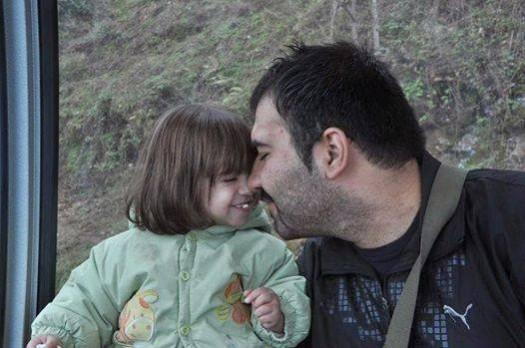
Iran has sentenced a 30-year-old blogger and photographer to death over an alleged offensive Facebook post.
Soheil Arabi was convicted by a criminal court in Tehran in August of "sabb al-nabbi" or "insulting the prophet of Islam" in his Facebook posts. The crime is punishable with death penalty.
On 24 November, Iran's Supreme Court not only upheld the court's ruling to hang him, but also added another crime to his list, "sowing corruption of Earth". This is also an offence punishable by death.
Human rights activists are demanding that the death sentence be repealed as Arabi was merely expressing an opinion.
"It is simply shocking that anyone should face the gallows simply because of Internet postings that are deemed to be crude, offensive, or insulting," Human Rights Watch quoted Eric Goldstein, deputy Middle East and North Africa director as saying.
Nastaran Naimi, Arabi's wife, who was also arrested with him by Iran's Revolutionary Guards in November 2013, said that although she was released soon after the arrest, Arabi was transferred to a special section of Evin prison.
There, Arabi was kept in solitary confinement for two months, subjected to long interrogation sessions, and he was prevented from meeting his lawyer, she said.
Niama also revealed that the interrogators had subjected him to psychological torture and threatened to prosecute and convict him if he did not take responsibility for posting offensive material about Prophet Muhammed on his Facebook page.
Vahid Moshkhani, Arabi's lawyer, told Human Rights Watch that the Supreme Court rejected his client's defence that he had "not written many of the Facebook posts and that he was merely sharing others' views."
According to Article 263 of the revised Islamic Penal Code, a person who "insults the Prophet" while drunk or by quoting others, among other acts, will be subjected to 74 lashes and not sentenced to death.
However, the deputy head of Iran's judiciary, Gholam Ali Mohseni Ejei, has revealed that at least as of now, Arabi will not be pardoned.
"Currently, there is no pardon, and he's been convicted of 'corruption on Earth,' but there has been a request for his case to be reviewed again, " said Ejei.
"Iran should urgently revise its penal code to eliminate provisions that criminalize peaceful free expression, especially when they punish its exercise with death," Goldstein voices the opinion of many people across the world, voicing support for Arabi and his release.
Arabi's plight came to light on 24 November, when the Supreme Court backed the trial court's decision to hang him.
Ever since, a Facebook page against Arabi's execution has been set up to spread awareness about the case and the various human rights violations in Iran.
Iran's hard stance against online dissent is infamous, according to Reporters Without Borders.
At least 65 activists, journalists and bloggers are currently held in prison because of their online activities, as of July.
A British woman of Iranian origin Ghonech Ghavami was held in prison for attempting to watch a men's volleyball match.
Seven people who danced to Pharell Williams' "Happy" song and posted the video online were sentenced to one year in jail and 91 lashes, according to BBC.















